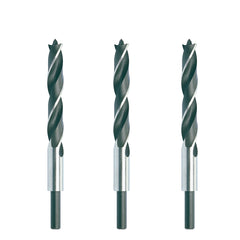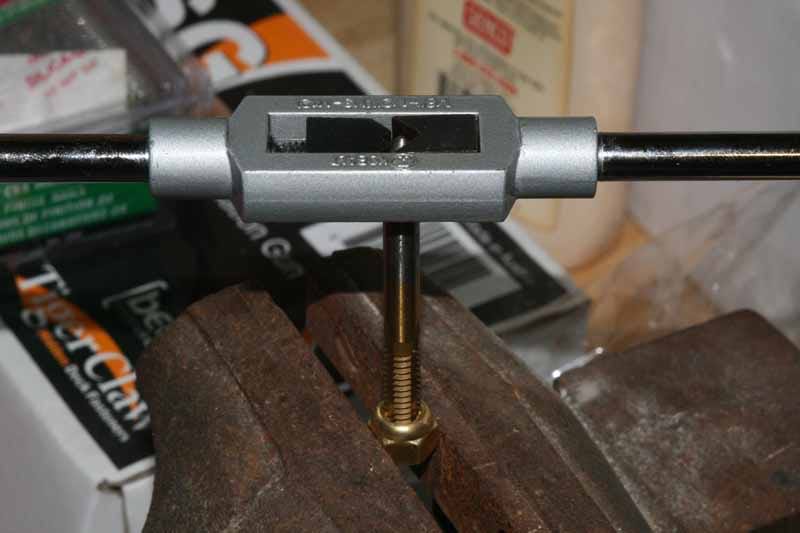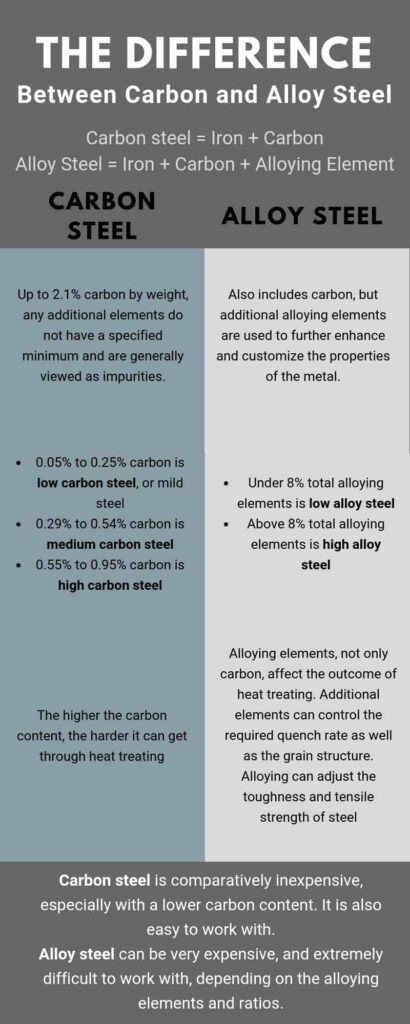Table of Contents
When it comes to drilling through plastic materials, having the right tools is essential. Plastic drill bits are specifically designed to tackle the unique challenges of working with plastic. But with so many options available, how do you choose the right ones for your project? In this article, we will explore the world of plastic drill bits and provide you with valuable insights to help you make the right choice.
Drilling into plastic materials requires a different approach compared to drilling into metal or wood. The wrong type of drill bit can cause the plastic to crack, melt, or chip, leading to a less-than-desirable outcome. That’s why it’s crucial to understand the different types of plastic drill bits available and their specific applications. Whether you’re a DIY enthusiast or a professional, having the right tools at hand can make all the difference in achieving precise and clean holes in plastic materials. So, let’s dive in and explore the world of plastic drill bits together!
1. Material: Opt for drill bits specifically designed for plastic materials. These bits have a sharp point and a flute design that allows for efficient chip removal.
2. Size: Choose the appropriate size based on the hole diameter you need to achieve.
3. Speed: Use low to medium drill speeds to prevent overheating and melting of the plastic.
4. Lubrication: Consider using a lubricant, such as cutting oil or water, to reduce friction and prolong the life of the drill bits.
Remember, using the right tools will ensure successful drilling in plastic materials, so choose wisely!
Plastic Drill Bits: Choosing the Right Tools for Plastic Materials
Plastic materials are commonly used in various industries, from construction to manufacturing. When working with plastic, it is essential to have the right tools to ensure accurate and efficient drilling. One crucial tool for drilling in plastic is the drill bit. However, not all drill bits are suitable for use on plastic materials. In this article, we will explore the different types of drill bits available for plastic and provide tips on choosing the right tools for your specific needs.
Types of Drill Bits for Plastic
When it comes to drilling in plastic, there are several types of drill bits to consider. Each type is designed to handle specific drilling tasks and materials. Here are some of the most common types of drill bits used for plastic:
1. Twist Drill Bits: Twist drill bits are the most common and versatile type of drill bits. They have a spiral-shaped flute that helps to remove chips and debris from the hole. Twist drill bits can be used for drilling in various materials, including plastic. However, they may not be the most efficient option for drilling in hard plastics.
2. Brad Point Bits: Brad point bits are designed with a sharp point at the tip, which helps to accurately position the hole. These bits are excellent for drilling in soft plastics, as they provide clean and precise holes. The sharp point also prevents the bit from wandering during drilling.
3. Spade Bits: Spade bits, also known as paddle bits, have a flat, paddle-like tip. They are commonly used for drilling large holes in wood, but they can also be used for drilling in soft plastics. However, spade bits may not be suitable for drilling in hard plastics, as they tend to generate heat, which can cause the plastic to melt or warp.
4. Step Drill Bits: Step drill bits are specially designed for drilling multiple hole sizes with a single bit. They have a cone-shaped tip with multiple stepped levels. Step drill bits are ideal for drilling in thin plastic sheets or materials with varying thicknesses.
Choosing the Right Drill Bit
When choosing a drill bit for plastic materials, there are several factors to consider:
1. Material Type: Consider the type of plastic you will be drilling. Soft plastics, such as PVC, require different drill bits than hard plastics, like acrylic or polycarbonate. Determine the hardness and density of the plastic to select the appropriate drill bit.
2. Bit Size: Choose a drill bit with the appropriate size for your desired hole diameter. Consider the thickness of the plastic and the specific requirements of your project.
3. Flute Design: Look for drill bits with flutes designed specifically for plastic materials. These flutes help to remove chips and debris efficiently, preventing clogging and overheating.
4. Coating: Some drill bits come with a special coating, such as titanium or diamond, which can enhance their performance and durability. Consider using coated drill bits for prolonged use or drilling in tough plastic materials.
5. Shank Type: Pay attention to the shank type of the drill bit. Hex shanks provide a more secure grip and are less likely to slip in the drill chuck, ensuring safer and more precise drilling.
6. Speed and Feed: Adjust the drilling speed and feed rate according to the plastic material you are working with. Higher speeds and lower feed rates are generally recommended for drilling in plastic to prevent melting or warping.
Tips for Drilling in Plastic
Drilling in plastic requires a slightly different approach compared to drilling in other materials. Here are some tips to ensure successful drilling in plastic:
1. Secure the Plastic: Use clamps or a vice to secure the plastic material firmly in place. This will prevent it from moving or vibrating during drilling, ensuring cleaner and more accurate holes.
2. Start with a Pilot Hole: For larger holes, it is advisable to start with a pilot hole. This small hole will act as a guide for the larger drill bit, reducing the risk of the bit wandering or slipping.
3. Use Lubrication: Applying a small amount of lubrication, such as cutting oil or WD-40, can help reduce friction and heat buildup during drilling. This is especially important when drilling in hard plastics.
4. Remove Chips and Debris: Regularly remove chips and debris from the hole to prevent clogging and overheating. This can be done by retracting the drill bit periodically during the drilling process.
5. Take Breaks: If you are drilling multiple holes or working on a large project, take breaks to allow the drill bit and plastic to cool down. This will prevent overheating and potential damage to the plastic material.
By choosing the right drill bit and following these tips, you can ensure successful drilling in plastic materials. Remember to always prioritize safety and wear appropriate protective gear, such as safety glasses and gloves, when working with power tools.
Key Takeaways: Plastic Drill Bits – Choosing the Right Tools for Plastic Materials
- Plastic drill bits are specifically designed for drilling holes in plastic materials.
- Choosing the right drill bit size is crucial for achieving accurate and clean holes in plastic.
- Using low-speed settings and light pressure while drilling can prevent cracks and damage to the plastic.
- Coated drill bits, such as titanium or cobalt, offer better durability and heat resistance when drilling plastic.
- Regularly cleaning the drill bit during use helps maintain its effectiveness and prevents clogging.
Frequently Asked Questions
What are plastic drill bits?
Plastic drill bits are specially designed tools used for drilling holes in various types of plastic materials. These drill bits are made with a specific geometry and cutting edge to effectively cut through plastic without causing damage or cracking. They are typically made from high-speed steel (HSS) or carbide materials, which offer durability and precision.
Plastic drill bits come in various sizes and styles, including twist bits, spade bits, and step bits. Each type is suitable for different drilling applications and plastic materials. It’s important to choose the right plastic drill bit to ensure clean and accurate holes in your plastic projects.
How do I choose the right plastic drill bit?
Choosing the right plastic drill bit requires considering several factors. Firstly, determine the type of plastic material you will be drilling into. Softer plastics, such as acrylic or PVC, can be drilled with standard HSS drill bits. However, harder plastics like polycarbonate or nylon may require carbide-tipped drill bits for optimal results.
Next, consider the size of the hole you need to drill. Different plastic drill bits come in various sizes, so select one that matches your desired hole diameter. Additionally, pay attention to the drill bit’s shank size, as it needs to fit securely in your drill chuck. Lastly, consider the drilling speed and feed rate, as excessive heat or pressure can cause plastic to melt or crack. Always follow the manufacturer’s recommendations for drilling speed and technique.
Can I use regular drill bits for drilling plastic?
While it is possible to use regular drill bits for drilling plastic, it is not always the best option. Regular drill bits are typically designed for drilling into metal or wood, and they may not have the proper geometry or cutting edge to effectively drill through plastic without causing damage.
Using regular drill bits on plastic can result in cracks, chips, or rough edges. It is recommended to use plastic drill bits specifically designed for plastic materials. These drill bits have a sharper cutting edge and a steeper flute angle, allowing for smoother and cleaner cuts in plastic.
How do I prevent melting or cracking when drilling plastic?
To prevent melting or cracking when drilling plastic, there are a few key steps to follow. Firstly, choose the right drill bit for the type of plastic you are working with. Softer plastics may require standard HSS drill bits, while harder plastics may need carbide-tipped bits.
Secondly, apply consistent and moderate pressure while drilling. Avoid using excessive force, as this can generate excessive heat and cause the plastic to melt. Additionally, it’s important to use the appropriate drilling speed recommended for plastic materials. Slow and steady drilling with proper cooling can help prevent melting or cracking.
Are plastic drill bits reusable?
Plastic drill bits can be reusable depending on the condition and quality of the bit after each use. If the drill bit is still in good condition with minimal wear or damage, it can be reused for drilling additional holes in plastic materials.
However, it’s important to regularly inspect the drill bit for any signs of dullness, chipping, or deformation. These factors can affect the performance and quality of the drill bit. If any damage is detected, it is recommended to replace the drill bit to ensure clean and accurate drilling.
Best Drill Bit For Plastic You can Get Today “[Don’t Buy Until You WATCH This!]”
Final Summary: Choosing the Right Tools for Plastic Materials
When it comes to working with plastic materials, it’s important to have the right tools for the job. And one of the key tools you’ll need is a set of plastic drill bits. These specialized drill bits are designed to handle the unique properties of plastic, ensuring clean and precise holes without causing damage or cracking.
In conclusion, choosing the right plastic drill bits is crucial for successful and efficient drilling in plastic materials. Remember to consider factors such as the type of plastic you’re working with, the size of the holes you need, and the speed and feed rates that are appropriate for the material. By selecting the right tools and following best practices, you can ensure accurate and reliable results in your plastic drilling projects. So, equip yourself with the right plastic drill bits and get ready to tackle your next plastic fabrication or DIY project with confidence!
Request a quote today!
[contact-form-7 id="1578" title="Contact form"]
Please compress the file into a ZIP or RAR file before uploading. Alternatively, send through your RFQ by email.
enquires@unitymanufacture.com





